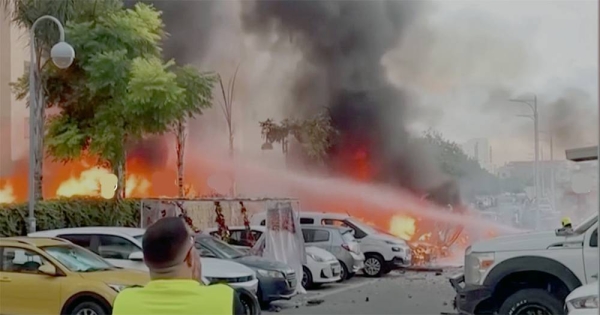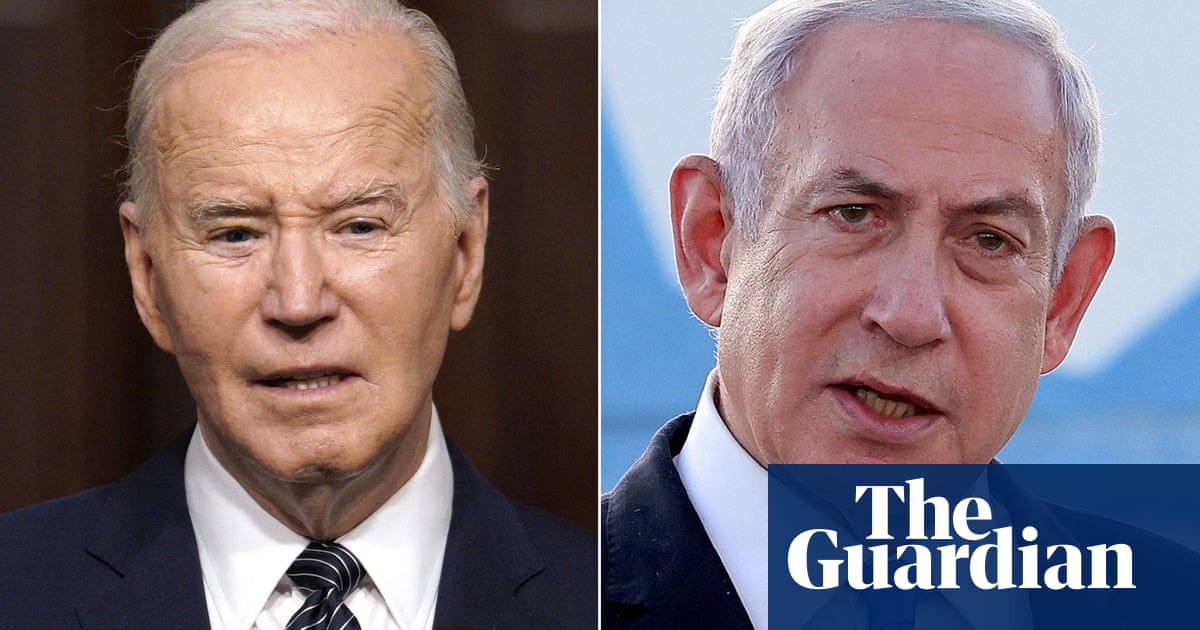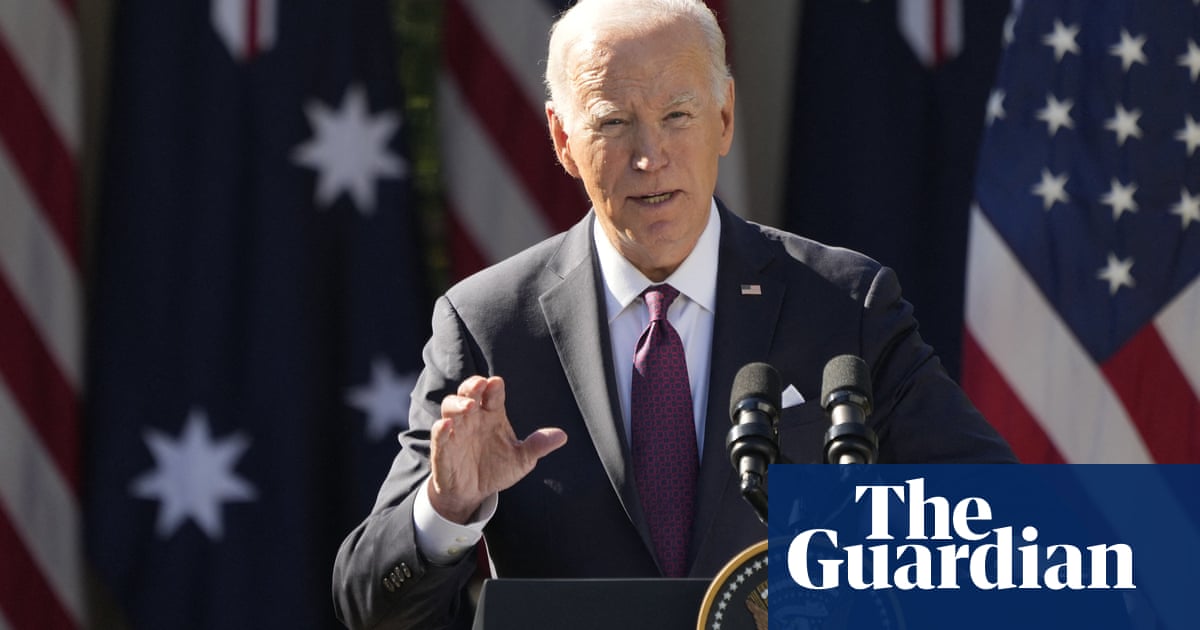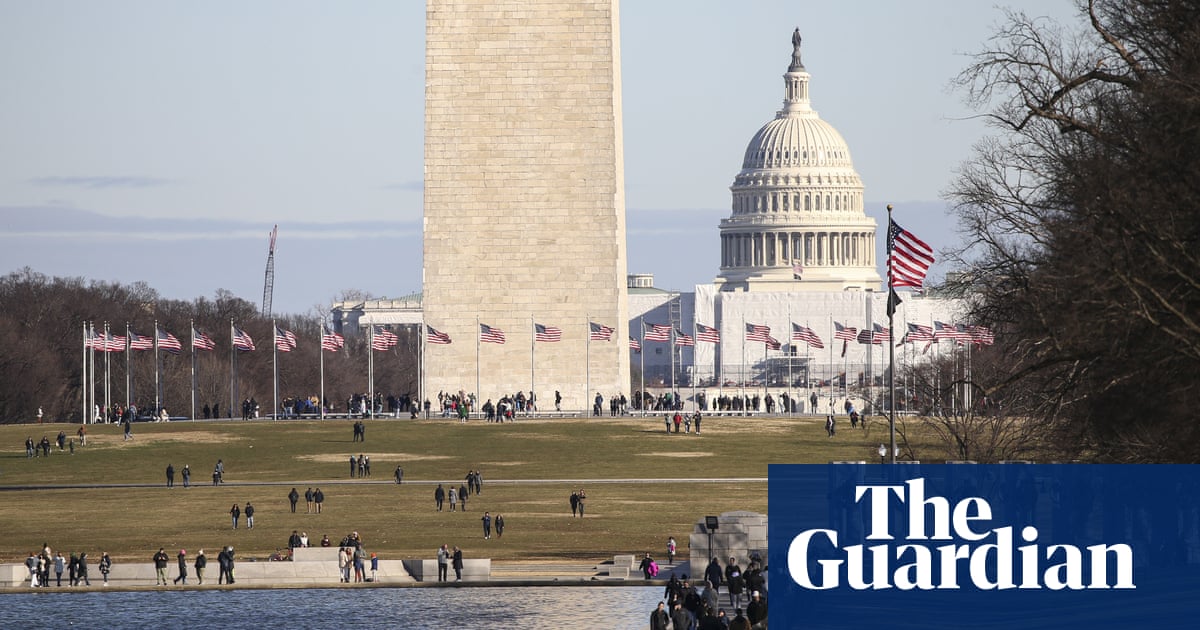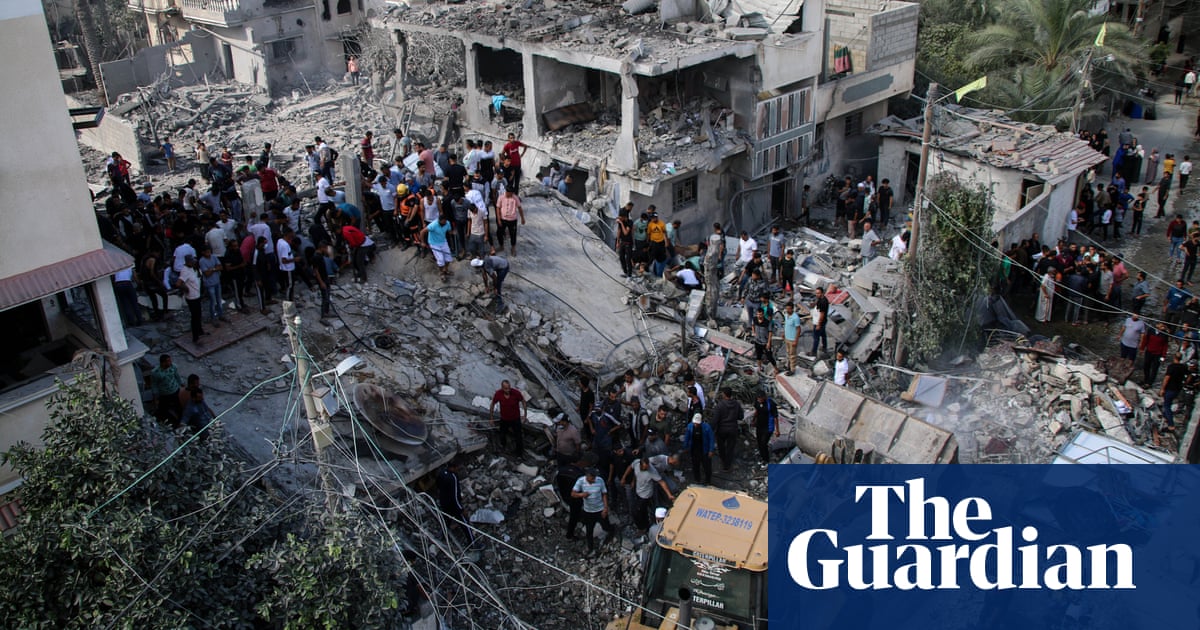
About 20 trucks carrying humanitarian aid will enter Gaza from Egypt’s Sinai Peninsula in the coming days, according to the White House, after President Joe Biden’s whirlwind visit to Israel that came in the aftermath of a deadly blast at a hospital in the besieged enclave.
Following hours of talks with Israeli prime minister Benjamin Netanyahu and his war cabinet, Biden said Israel had agreed to allow the opening of the Egypt-Gaza Rafah crossing to deliveries of desperately needed food, water and medical supplies on condition that the humanitarian assistance was not diverted by Hamas for its own use.
“The people of Gaza need food, water, medicine and shelter,” Biden said, while vowing to continue to provide for Israel’s security needs and supporting Israel’s assessment that the explosion at the al-Ahli Hospital on Tuesday night was not the result of an Israeli airstrike, but of “an errant rocket fired by a terrorist group in Gaza”.
However, Biden added that “if Hamas diverts or steals the assistance, they will have demonstrated once again that they have no concern for the welfare of the Palestinian people, and as a practical matter it will stop the international community from being able to provide this aid.”
The shipment would probably not cross until Friday, Biden said, adding that the 20 trucks represented a “first tranche,” but “150 or something” trucks are waiting in total. Whether the rest are allowed to cross will depend on “how it goes”.
Supplies will go in under supervision of the UN, Egyptian foreign minister Sameh Shoukry told Al-Arabiya TV. Asked if foreigners and dual nationals seeking to leave would be let through, he said: “As long as the crossing is operating normally and the [crossing] facility has been repaired.”
While the agreement to allow aid through the Rafah crossing was a breakthrough, the UN and other aid agencies have warned that the relief will still fall short of what’s needed. Gaza’s entrapped population of 2.3 million people is in danger of death by dehydration, hunger, disease and injuries from bombardment.
Humanitarian organisations have stockpiled life-saving supplies on the Egyptian side of the border, waiting for the crossing at Rafah to open. UN aid chief Martin Griffiths told the security council on Wednesday that the organisation sought to bring aid deliveries to Gaza back to 100 trucks a day, the level before the Israel-Hamas conflict.
While in Israel, Biden expressed grief for the Palestinians who died in the explosion at al-Ahli hospital in Gaza, but he said the US agreed with Israel on the cause.
“Based on the information we have seen to date, it appears as a result of an errant rocket fired by a terrorist group in Gaza,” he said. The Israel Defence Forces have said the cause was a rocket fired by Palestinian Islamic Jihad, while Hamas says the blast was caused by an Israeli airstrike.
On Tuesday, the White House’s national security council said that a US government assessment found that Israel was not responsible for the explosion, pointing to intelligence indicating that “some Palestinian militants” in the Gaza Strip believed that the blast “was likely caused by an errant rocket or missile launch carried out by Palestinian Islamic Jihad”.
The explosion at the hospital and its heavy death toll led to the cancellation of what was supposed to be the second leg of Biden’s Middle East peace mission – a meeting in Amman with al-Sisi, Jordan’s King Abdullah and the head of the Palestinian Authority in the West Bank, Mahmoud Abbas.
On Thursday, British prime minister Rishi Sunak will travel to Israel before heading to other countries in the region in an effort to deescalate the Israel-Gaza conflict, his office has said.
Sunak is due to meet Netanyahu and Israeli President Isaac Herzog. He is also expected to insist that humanitarian aid – which London recently announced would be increased for the Palestinians – be allowed to enter Gaza.
More than a million Palestinians have fled their homes – roughly half of Gaza’s population since the war began. Those fleeing the north to move south have crowded into UN schools or the homes of relatives.
The Gaza health ministry said 3,478 people have been killed in Gaza since the war began, and more than 12,000 wounded, mostly women, children and elderly people.
More than 1,400 people in Israel have died, mostly civilians killed during Hamas’ deadly incursion on 7 October.
Arab leaders have told US secretary of state Antony Blinken – who has been crisscrossing the region this past week – that they oppose collective punishment against ordinary Palestinians, which they fear will trigger regional unrest.
The fear among world leaders and diplomats is that the war will spread beyond the confines of Gaza, with Lebanon’s Hezbollah and its backer Iran opening major new fronts in support of Hamas.
The Israeli government struck a Syrian military position in the war-torn country’s south, according to a war monitoring NGO
The UK-based Syrian Observatory for Human Rights, which has a vast network of sources in the country, said the sound of explosions could be heard the Golan Heights.
The reported strike on Syria coincided with an announcement by the Israeli army of strikes against “terrorist positions” of Hezbollah in Lebanon.




